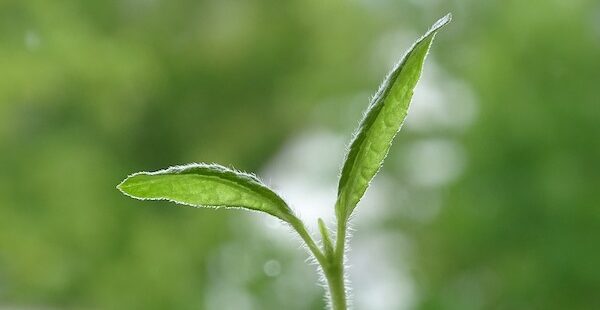
On the Cultivation of Rare Plants, Endurance, and Christlike Character
“Not only that, but we rejoice in our sufferings, knowing that suffering produces endurance, and endurance produces character…” (Romans 5:3-4)
Suffering for the Christian is a painful experience, but not a destructive one. As Paul lays out in Romans 5:3-5, it leads to valuable benefits, including assurance of salvation. And while suffering has the potential to ruin some people – causing them to abandon their faith, or to become reclusive and bitter – Paul has no fear about this for the elect. Because they are being guided by a power greater than themselves, he knows that they will get through their sufferings intact – and with benefit.
Suffering creates extreme conditions. On the barren, windswept plain of adversity, the temperatures can range from bitter cold to stifling heat. There are some things which can barely grow in such a difficult environment. Many valiant efforts are simply swept away by the unceasing wind. Many good intentions sprout on this soil but quickly wither and die.
Yet eventually the plants – as it were – become wiser. Through the gradual process of adaptation, the roots cling more deeply to the soil. They learn to go deep before going tall, and to cling close to the ground rather than waving loftily in the wind. Such plants are often hard to observe – much harder than their more showy brethren – but they stand a chance of surviving in this environment. This is because they have learned endurance – that it is better to grow slowly and humbly and survive than to be flashy and yet fall apart in adversity.
Endurance – hanging on to Christ and his promises – in the midst of hardship is what Paul has in mind. And for those who do hang on, the endurance which grows on this plain eventually flowers and fruits, creating the precious fruit of character.
It is this character which God is at work to produce in his people. It is not an easy fruit to grow. In the humid lowland jungles of ease, the plant is easily overshadowed by its competitors. Yet the fruit itself is priceless. It is literally the divine character on earth, a heavenly fruit borne on an earthly plant, a representation of Christ on display. We can never overvalue this fruit, even though we often do. Its more flashy cousins – dreams, ambitions, hopes, expectations, plans – produce much more showy fruit, even though the quality is incomparably sub-par. Yet on the plains of adversity, these other plants wither and die at an astonishing rate, and their fruit often rots.
Such a plant is what we might rightly call an ‘extremophile’ – one which has learned to grow in the most austere environments. While there are many plants that resemble it, this plant is different because it alone can survive the actual rigors which one encounters on the plains of adversity.
Just as Mordecai stood regularly before the gate of the Persian king, because of his intense neediness, so those who live on the plains of adversity are positioned at the very door to heaven’s throne. This is their great benefit. They stand on hallowed ground.
Even if they cannot sense it, they are the inheritors of a blessing – for what more blessing can there be, than to be constantly in the presence of God, constantly aware of one’s need for God, pressed by extremity out of oneself and before the divine presence? Even if one cannot sense a blessing, how surely it exists! How much better to be on these barren plains, constantly seeking God, than to be in the jungles of ease, apathetic and rarely in God’s presence?!
Hence this is the way in which character is produced – the process by which God cultivates rare plants.
In place of comments, I would love to hear from you personally. Please reach out to me via the Contact Page to share your thoughts and perspectives on this post!
Enjoying this content? Subscribe to receive it directly in your email, once a week.





